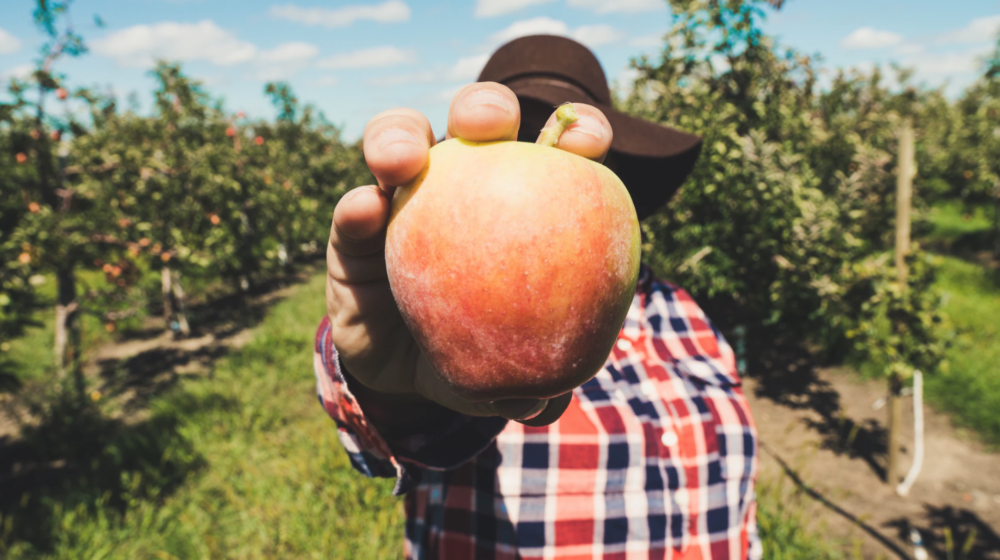Although there is still some debate around what regenerative agriculture does or does not include, one of its frequently discussed tenants is the need to boost biodiversity. Today, much of our agricultural production depends on monocultures of a few species produced at mass scale in highly-efficient systems. This is great assuming that your only goal is yield maximization.
“When we first started thinking about it, if we demand healthy food we should also demand really healthy landscapes and ecosystems,” Ethan Steinberg, CEO and co-founder of Propagate Ventures, told AFN. ““We looked at the bottlenecks in regenerative agriculture and realized that trees are an important pillar in the ecosystem that are not currently being addressed. So we asked: how can farmers and producers have an opportunity to utilize trees as part of the regenerative agriculture toolkit?”
Founded around 2017, the New York-based investment outfit recently closed a $1.5 million seed round led by Boston-based Neglected Climate Opportunities a wholly-owned subsidiary of the Jeremy and Hannelore Grantham Environmental Trust. Propagate Ventures is Techstars-backed and a portfolio company of Elemental Excelerator.
Propagate’s goal is to make it easy for investors to back low-risk agroforestry projects while simultaneously helping farmers boost their farms’ ecosystem services and profits. It’s modeled after companies like AngelList and Wunder Capital, which is what caught the attention of the Grantham Environmental Trust, according to the startup. The company analyzes an interested farmers’ operation, provides guidance on what to plant and where, provides access to contractors to make the project happen, and connects the farmer to capital to cover the upfront costs. It can take three years or more for fruit-bearing trees to bear fruit. This makes it a long-term investment and therefore less appealing to some producers.
“Farmers are interested in this but they struggle to get financing, and debt is not always an attractive option. When talking with farmers, what became clear to us was that the limiting factor surrounded economics: how does agroforestry affect cash flow, are the markets active, how can it help operations?”
What is Agroforestry?
Agroforestry is an umbrella term used to refer to the incorporation of trees in agricultural production. Whether its alley cropping between rows of trees or grazing cattle through a silvopasture, the trees offer a new level of biodiversity through their impact on soil health, wildlife habitat, and even reduced pest pressure. Nitrogen-fixing trees can increase nitrogen inputs while the deep root systems help prevent soil runoff while improving the soil’s water-holding capacity. And from a livestock standpoint, trees provide shade in the summer and shelter in the winter.
The concepts behind silvopasture and alley cropping are far from novel. Mike Hands has been promoting the adoption of Inga tree alley cropping in tropical areas, for example. Major corporates have been taking increasing heat for not doing enough to address deforestation in their supply chains, putting extra pressure on them to take action. Danone and Nestle were recently ranked highly in their deforestation reduction efforts. Nestle implemented agroforestry and reforestation practices while Unilever offers payments to producers who protect existing rainforests or regenerate ailing forests.
A handful of startups have made similar ecosystem services incentives part of their innovative mindset like Germany’s Ecosia, which partnered with Bing to turn advertising profits into tree planting funds. In the same vein, startups are increasingly considering models that pay farmers for the ecosystem services that farms can provide when managed optimally. Nori operates a carbon credit marketplace with this aim in mind for example while Cargill is running a new project that pays farmers in Iowa for adopting practices that sequester carbon and improve water quality.
Propagate is still working through its ultimate model but will ultimately bring together agroforestry projects into a diversified portfolio that investors can back. It provides farmers with more than just the capital to start an agroforestry project, ensuring that they have the educational resources they need to succeed. It’s currently working on around 20 projects throughout the Northeast, mid-Atlantic, and aiming to break ground in the Midwest next.
The projects aren’t just aimed at improving biodiversity. Propagate wants to give farmers a new income opportunity, too. One of its current projects involves planting cider apple trees among an asparagus crop and processing them through a cider house on the property.





